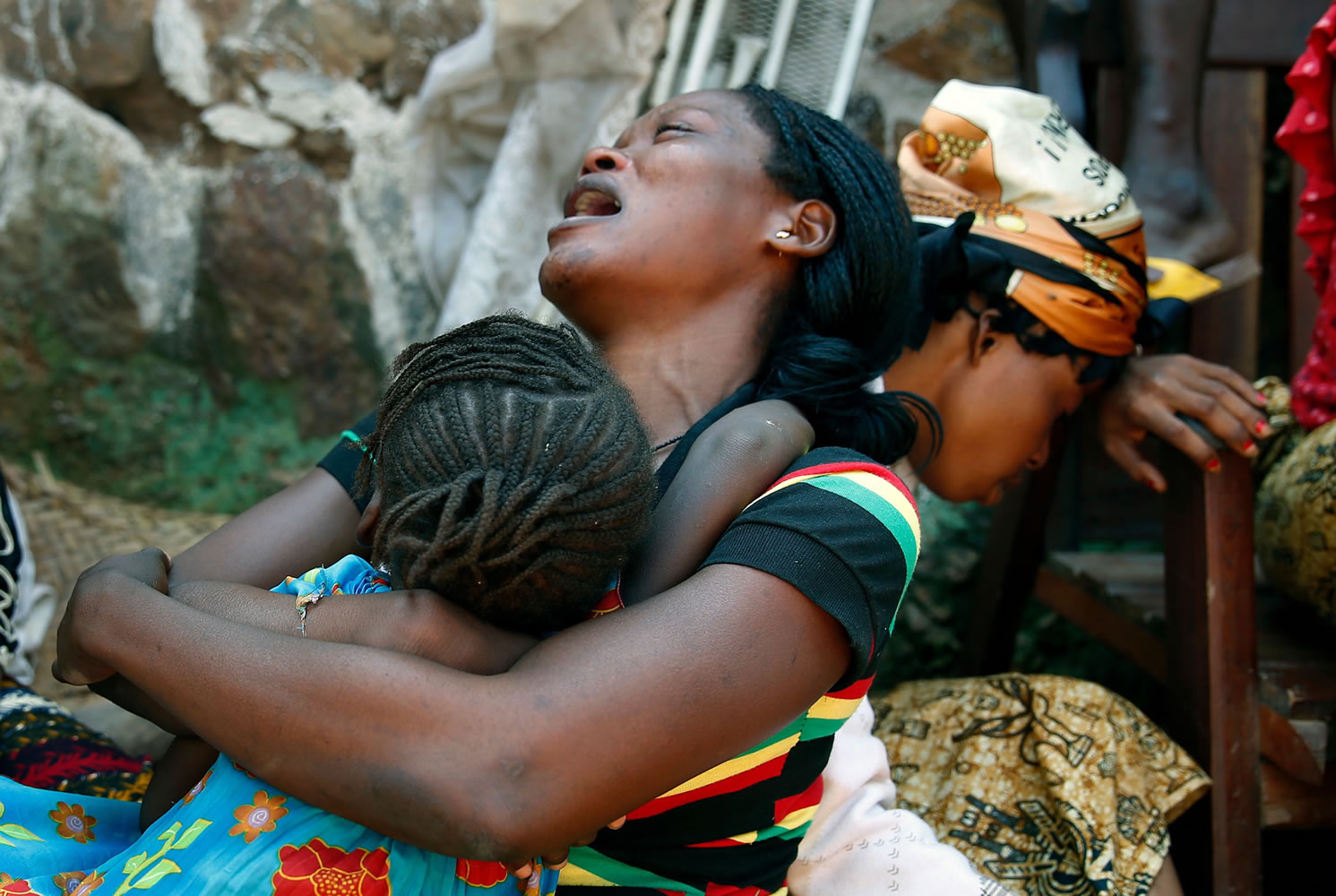BANGUI, Central African Republic — France and the African Union on Saturday announced plans to deploy several thousand more troops into embattled Central African Republic, as thousands of Christians sought refuge from the Muslim former rebels who control the country after days of violence killed nearly 400 people — and possibly more — and Muslim civilians hid from Christian militias.
Concluding an aptly-timed and long-planned conference on African security in Paris, President Francois Hollande said France was raising its deployment to 1,600 on Saturday — 400 more than first announced. Later, after a meeting of regional nations about Central African Republic, his office said that African Union nations agreed to increase their total deployment to 6,000 — up from about 2,500 now, and nearly double the projected rollout of 3,600 by year-end.
Amid new massacres on Thursday, U.N. Security Council adopted a resolution that allows for a more muscular international effort to quell months or unrest in the country. Troops from France, the country’s former colonial overseer, were patrolling roads in Bangui and fanning out into the troubled northwest on Saturday.
Word of the bigger deployments came as human rights groups continued the grisly business of counting and collecting bodies of those killed in recent massacres. The death toll in the capital from the recent fighting rose on Saturday to 394, said Antoine Mbao Bogo of the local Red Cross.
Central African Republic President Michel Djotodia called on former rebels who are now integrated into the national army to stay off the streets now being patrolled by French and regional forces. Presidential spokesman Guy Simplice Kodegue said those who violated the order would be punished.
One of the world’s poorest countries, Central African Republic has been wracked for decades by coups and rebellions. In March, a Muslim rebel alliance known as Seleka overthrew the Christian president of a decade. At that time, religious ideology played little role in the power grab. The rebels soon installed Djotodia as president, though he exerted little control over forces on the ground. He has since formally disbanded the Seleka coalition, but the former rebels now consider themselves the army.
Now, sectarian strife has grown. On Saturday, aid workers returned to the streets to collect bloated bodies that had lay uncollected in the heat since Thursday, when Christian fighters known as the anti-balaka, who oppose Djotodia, descended on the capital in a coordinated attack on several mostly Muslim neighborhoods. Residents of Christian neighborhoods said Seleka have counter-attacked by going house-to-house in search of alleged combatants and firing at civilians who merely strayed into the wrong part of town.
Zumbeti Thierry Tresor, 23, was among those slain after he tried to cross through another neighborhood to visit family in another part of Bangui. Seleka fighters shot him in the neck and stomach, his friends said. On Saturday, neighbors hiked the rocky path to his one-room home where his covered body lay on the floor below neatly hung music posters.
“We want the French army to come and protect us,” said Tresor’s friend Francois Yayi. “We have no police to call. The Seleka will kill us all.”
He and his friends begin counting on their fingers the number of neighbors slain amid the latest spasm of bloodshed. At least 10, they say, have died since Thursday.
Most of the displaced in Bangui are Christian: ex-Seleka have not targeted Muslim neighborhoods. But anger over the attacks has prompted vicious reprisals on Muslim civilians in other parts of the country. Nearly a dozen Muslim women and children were slain less than a week ago just outside the capital in an attack blamed on the Christian fighters.
Seleka are blamed for scores of atrocities since taking power, tying civilians together and throwing them off bridges to drown and burning entire villages to the ground. Anger over such abuses has fanned a backlash against Muslim civilians, who make up only about 15 percent of the population. The anti-balaka, the armed Christian movement that has arisen in response to the Seleka attacks, is widely believed to be supported by former army soldiers loyal to ousted President Francois Bozize.



